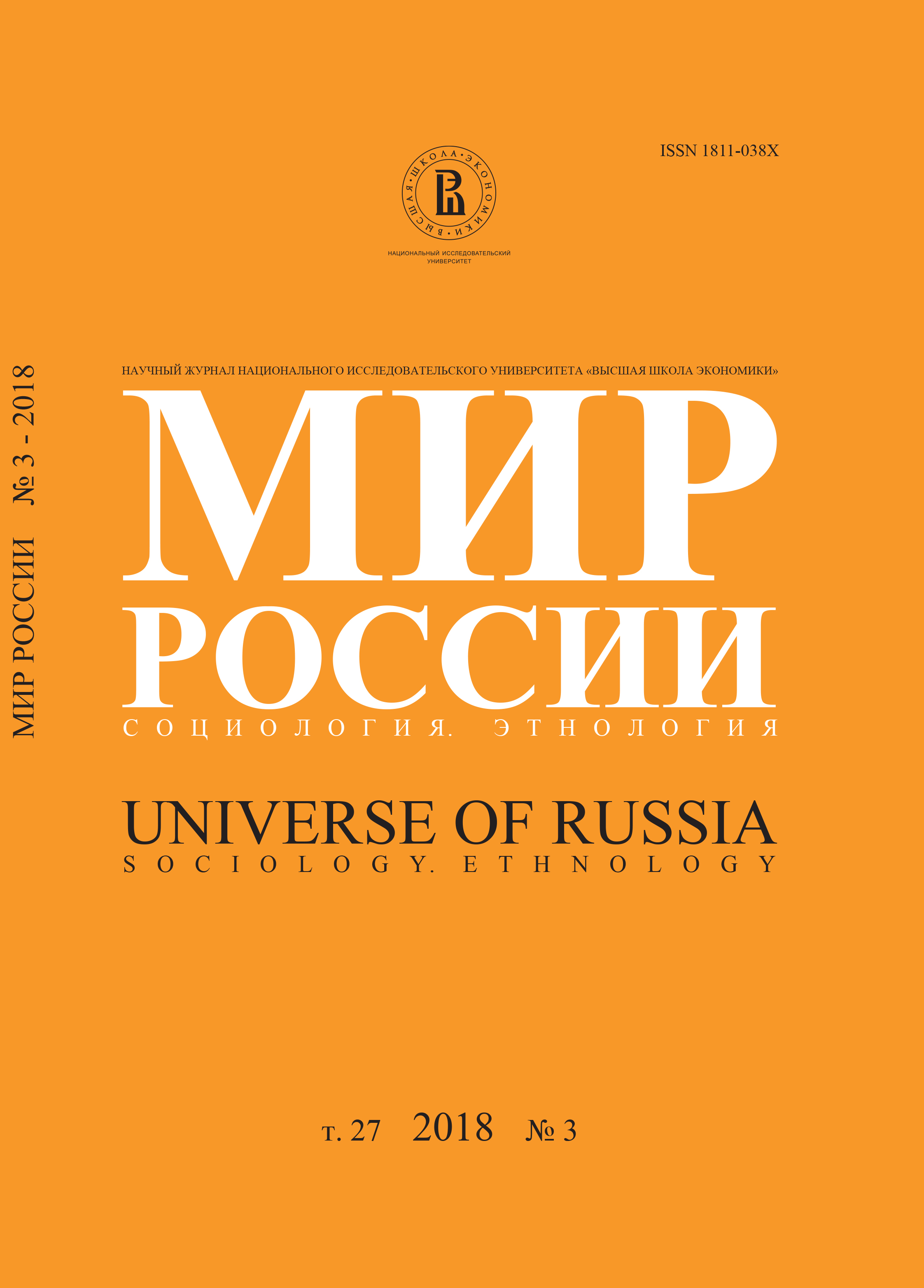The Kingdom of Crooked Mirrors: the Evolution of Illegal Alcohol Markets in Russia from the 1980s
Abstract
Vadim Radaev – DSc in Economics and Sociology, Professor, Head, Laboratory for Studies in Economic Sociology, National Research University Higher School of Economics. Address: 20, Myasnitskaya St., Moscow, 101000, Russian Federation. E-mail: radaev@hse.ru
Citation: Radaev V. (2018) The Kingdom of Crooked Mirrors: the Evolution of Illegal Alcohol Markets in Russia from the 1980s. Mir Rossii, vol. 27, no 3, pp. 28–60 (in Russian). DOI: 10.17323/1811-038X-2018-27-3-28-60
This study examines the evolution of heterogeneous illegal markets in Russia from the 1980s with a particular emphasis on the markets of homemade, counterfeit and otherwise illegally manufactured alcohol. The markets’ are illegal in different ways, including violations of the formal ban on the market exchange of certain products, non-compliance with intellectual property rights, and tax evasion. Multiple sources of statistical and survey data are used to demonstrate that the composition of illegal alcohol
markets in Russia developed through four different stages, following political, legislative and economic changes. These stages are: 1) late socialism and the Gorbachev’s antialcohol campaign (1980–1991); 2) liberal reforms and economic collapse (1992–1999); 3) state consolidation and economic growth (2000–2007); and 4) economic recession and new anti-alcohol reforms (2008–today). At each stage, some of these markets became dominant, whereas others were unchanged or trended downward. At the first stage of late socialism, homemade alcohol was dominant. At the second stage of liberal reforms, it was partially replaced by smuggled and counterfeit alcoholic beverages. At the third stage of state consolidation and economic growth, illegal alcohol markets shrank. Finally, at the fourth stage, positive trends were interrupted, and illegally manufactured alcohol became the dominant form of the illegal alcohol market. The obtained data show that illegal alcohol markets tend to grow in periods of exogenous political or economic stressors, whereas in periods of relative economic stability and growth, illegal alcohol markets
shrink or remain at the same level. At some stages, illegal markets may move in parallel with legal markets, whereas at other stages, they may move in the opposite direction. Changes in the structure of illegal markets are backed by a continuous requalification of products, organizations and transactions contesting the boundaries between legality and illegality. Some illegal activities retain their legitimacy because of the ignorance or tolerance of enforcement agencies and final consumers. Boundaries between legitimate and illegitimate activities are blurred and move slowly.






